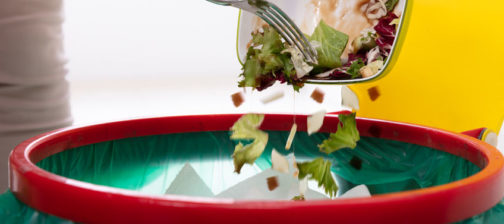Written By Julie Paiva, CHHC
Often people comment that eating healthy is too expensive. Processed foods are largly what goes on sale in our local grocery stores, and dollar value meals draw customers to their drive-thru windows. However, what are the long term costs to your health by pinching your pennies when it comes to the food you choose to eat? The truth is healthy eating doesn’t have to be more expensive if you’re a smart shopper. Here are some tips to make your healthy eating journey more pocket book friendly.
Have A Strategy
Have you heard that old saying, “Never shop hungry?” It’s true when you go into a grocery store hungry you are bound to fill your cart with more ,and most of the time they will be the least healthy options. Eat a snack before you venture out, and watch how much less you are tempted to purchase.
Spending less at the store really comes down to your shopping strategy. Do you make a list? Making a list and knowing what you plan to buy ahead of time means you’re less likely to pick up things you don’t need and can help keep your grocery bill down. Search through weekly shopping flyers and head to the store with the most items on sale. Flipp is a great website. You can search your area by zipcode and get the sale flyers for your local stores. Plan out your meals ahead of time and shop for ingredients for each dish. Marpé’s meal planning service is an excellent resource as they put together your meal plans for you.
Be A Mindful Shopper
An important thing to remember is that grocery stores are businesses. They want you to buy as much as possible. Eye-catching displays at the end of aisles and brightly packaged snacks at the checkout counter are placed there because you’re more likely to put them in your cart when they are. Everything from store layout, aroma, lighting and music is working to put you in a good mood and make you more likely to buy items you didn’t originally plan to purchase. As you shop, be mindful of your surroundings and how they might be encouraging you to buy certain products. By being aware of how stores are set up, you’re less likely to allow them to influence your shopping behavior. Stick to your list! Preparation can help you avoid temptation.
Shop Seasonally
Be open to purchasing what’s seasonal. In-season produce is typically less expensive and often what is on sale in the produce section. To learn more, check out this previous post about seasonal eating.
Dirty Dozen
Most people would love to purchase all organic products, but our budgets don’t always allow us to do so. Purchasing organic items based on the dirty dozen list will help you save money while eating healthy. To learn more, check out this post where I expand more on this topic.
Use What You Have
When getting ready to make your shopping list for the week search your fridge and pantry. What do you have lying around that you can make into a meal? If you have chicken, but don’t know what to so with it log onto Marpé and type chicken in the search box. Many healthy options will appear. Choose one that you have most of the ingredients for already. This will limit what you need to purchase when at the market.
Embrace leftovers! Leftovers may not sound glamorous, but having a ready-to-go meal can be a lifesaver when you get home from a long day. Cook a roast on the weekend. Slice it up with some veggies one night then use the rest in a stir fry or serve with peppers onions like a quick fajita dish. Often leftovers get pushed to the back of the fridge and don’t end up being eaten at all – not only is this a waste of food, but it’s a waste of money.
Before your next shopping trip take inventory of what’s on hand. Store your leftovers in clear glass containers so you can easily see what is inside. If it’s been a couple of days and you haven’t had time to eat them, pop them in the freezer so they don’t go bad. Then you can have them when you need them.
Healthy eating can be expensive, but a little planning and mindfulness can go a long way toward reducing your grocery costs. If you’re trying to improve your diet but don’t want to spend a fortune, the best ways to save money on food are to shop smart, eat seasonally, use the dirty dozen as a guide, and reduce your food waste. If these tasks seem daunting for you, don’t forget that Marpe’s meal planning service can help you easily implement these habits and save you time and effort.




